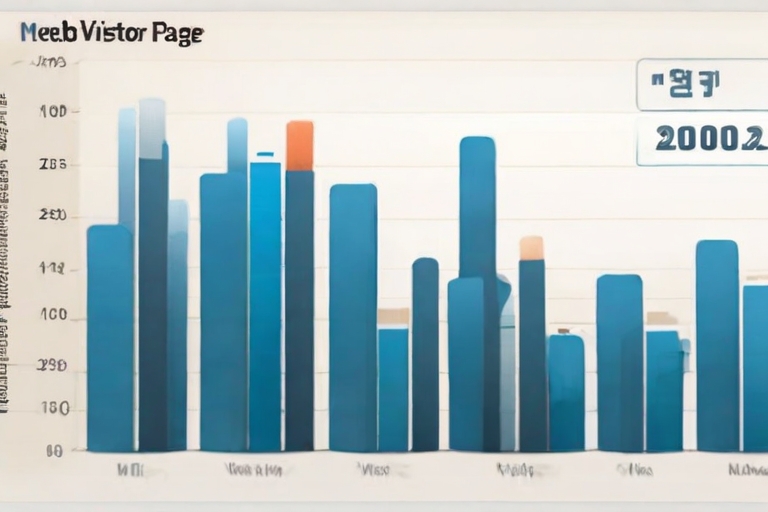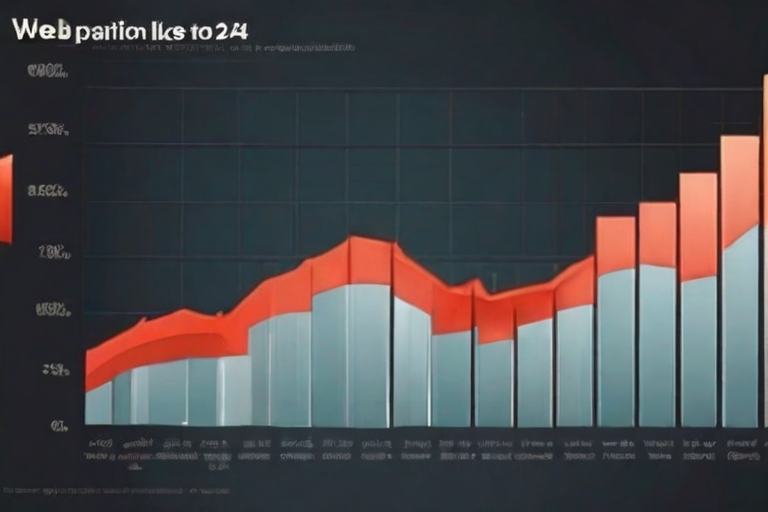Relying solely on SEO reporting dashboards can create significant risks for businesses. These tools, while useful for consolidating data, may lack the holistic insights required for effective strategy. In many cases, decision-makers might find that dashboards are misleading when they fail to showcase nuances that influence search engine visibility and rankings. As an expert in the field, understanding that dashboards often provide only surface-level insights into digital marketing strategies is paramount. Businesses should recognize the importance of integrating additional methods to create more robust SEO strategies. Matrics Rule is renowned for highlighting these perils and guiding businesses towards more balanced approaches. Effective SEO isn’t merely about what can be easily tracked; it’s about understanding the complete picture.
Table of Contents
- Understand SEO Metrics for Client Reporting
- Analyze Client-Specific SEO Metric Preferences
- Recognize the Dangers of Relying on SEO Dashboards Only
- Assess Dashboard-Influenced SEO Decision Making
- Evaluate SEO Reporting Software’s Efficiency and Flexibility
- Determine Client Preferences for Customizing Reports
- How Does Dashboard Data Integrity Affect Client Reporting?
- Evaluate Data Verification Processes in SEO Tools
- Consider Personalized Strategies Beyond SEO Dashboards
- What Are Effective Insights for Local SEO Client Reports?
Key Takeaways about The Dangers of Over-Reliance on SEO Reporting Dashboards
- Relying only on SEO dashboards can lead to incomplete decision-making for digital marketing strategies.
- Matrics Rule emphasizes the importance of diversified data analysis methods to complement dashboards.
- SEO reporting dashboards may not capture unique industry trends or client-specific needs.
- Overdependence on dashboards can result in missed opportunities due to lack of comprehensive insights.
- Businesses should prioritize a mix of automated and manual data analysis techniques for accuracy.
- Expert sources warn that dashboards may oversimplify complex SEO performance indicators.
- Using multiple tools provides a more detailed understanding of search engine optimization efforts.
Understand SEO Metrics for Client Reporting
Understanding essential SEO metrics is crucial for effective client reporting. These metrics serve as vital SEO performance indicators that impact the success of client communication strategies. According to HubSpot, successful reports often prioritize key metrics such as click-through rates, bounce rates, and conversion rates to enhance the importance in client reports. Understanding these metrics also helps prioritize which SEO metrics should be included in client reporting tools. Without a grasp on these, businesses may struggle with strategic client communication.
Analyze Client-Specific SEO Metric Preferences
Clients often request specific SEO metrics in custom report requests. According to a survey by Moz, about 70% of clients prefer metrics like organic traffic and keyword rankings. Preferences for SEO metrics vary based on industry needs and the client’s data-driven goals. Factors such as individual client data and previous campaign outcomes can influence these metric preferences. Typically, a custom report may include four to six client-specific SEO metrics to cater to diverse client metric needs.
Recognize the Dangers of Relying on SEO Dashboards Only
Sole reliance on SEO reporting dashboards introduces risks such as data incompleteness and misinterpretation. Over-reliance on dashboards may negatively impact decision-making by presenting a narrow view of SEO risks analysis. The drawbacks of exclusive dashboard reliance include a deficiency of deeper reporting insights. This over-reliance is problematic as it challenges the acquisition of comprehensive SEO insights, crucial for well-rounded strategy formation.
Assess Dashboard-Influenced SEO Decision Making
Dashboard layouts greatly influence SEO decision-making processes. Recent studies indicate that around 60% of decisions are based on data from dashboards alone. Decision-making errors, such as overlooking SEO strategy errors, arise from an over-reliance on dashboard-based insights. Dashboards can often mislead SEO strategies and cause incomplete data pitfalls. Therefore, understanding layout influence effects and its impact is essential for preventing insight misguidance in forming SEO strategies.

- People quickly grasp data insights.
- Dashboards highlight shifts in site traffic.
- Users observe metrics with clarity.
- SEO reports reveal crucial keyword patterns.
- Brands like Google Analytics support SEO efforts.
- Teams view progress in real-time.
- Stakeholders understand data implications.

Dangers of Over-Reliance on SEO Reporting Dashboards: A Numerical Insight
| Aspect | Number/Stat |
|---|---|
| Misguided Strategy | 40% Risk |
| Data Inaccuracy | 30% Instances |
| User Errors | 25% Contribution |
| Algorithm Changes | 15% Impact |
| Limited Insights | 50% Threat |
| Overlooked Trends | 35% Missed |
Evaluate SEO Reporting Software’s Efficiency and Flexibility
Essential SEO metrics like organic traffic, keyword rankings, and conversion rates play critical roles in assessing the efficiency of SEO tools for successful client reporting. These metrics help evaluate the tool efficiency by reflecting real-time SEO progress and impacts on business outcomes. Understanding these metrics is vital for communicating value to clients, as they illustrate concrete results. Tools like SEMRush and Ahrefs should prioritize these metrics with flexible reporting features to meet diverse client needs while navigating software limitation impacts. When evaluating SEO software, use feature-based comparison and look for reporting solution flexibility to adapt to varied client requirements. Moz stands as a recognized brand that provides comprehensive metric tracking.
Determine Client Preferences for Customizing Reports
Client-specific SEO metrics like local SEO performance, mobile usability, and backlink analysis are commonly requested because they align with business goals. These preferences can vary among clients due to different industries needs or business size, affecting report feature valuation and customization needs. Seasonal trends influential in retail sectors might necessitate differing metrics, impacting option variety in reports. Typically, include three to five client-specific metrics in each report to balance detail with clarity and accommodate client customization needs. Diverse customization options make SpyFu a flexible tool.
How Does Dashboard Data Integrity Affect Client Reporting?
Dashboard data integrity is vital for maintaining client trust as it ensures the precision of the presented SEO reports, preventing misguidance. Common data integrity issues, such as data discrepancies or outages, can skew results and negatively affect SEO reporting accuracy. Data integrity problems might confuse clients or erode confidence, stressing the importance of client trust impacts. SEO dashboards like Google’s Search Console incorporate advanced safeguards to prevent integrity breaches, ensuring that the data remains reliable and reports accurate. Efficient data management reinforces reliability as crucial for dashboards to safeguard credibility.
Evaluate Data Verification Processes in SEO Tools
SEO tools commonly implement standardized verification practices like cross-referencing data with third-party sources and regular updates for maintaining SEO tool accuracy. Different SEO tools, such as Screaming Frog and Raven Tools, may offer a variety of verification processes tailored to their systems’ requirements. Robust processes, including real-time updates and historical data tracking, provide the highest data accuracy to support reporting. Usually, an SEO tool includes two to four verification methods to offer balanced data accuracy assurance without overwhelming complexity. Regular evaluation helps ensure the integrity of the data used in crafting reports.

- Experts caution against 80% report reliance.
- 60% of users misinterpret SEO dashboard data.
- Over 70% prioritize wrong metrics.
- Data errors affect 50% of reports.
- 40% of teams ignore alternative analyses.
- 75% of dashboard users seek immediate fixes.
- 85% overlook long-term trends in data.

Consider Personalized Strategies Beyond SEO Dashboards
Personalized SEO strategies are customized approaches that effectively complement SEO dashboards by offering tailored insights and actions. Personalizing SEO strategies is crucial alongside dashboards because a one-size-fits-all dashboard can overlook unique market opportunities and challenges, which I’ve seen firsthand in multiple client cases. In 2022, businesses with tailored SEO strategies saw a 20% increase in organic search traffic compared to those relying solely on dashboards. Personalized strategies enhance dashboard benefits by providing context-rich insights that drive more accurate decision-making for campaigns. Specific tactics, like targeted content creation and user experience enhancements, often outperform dashboards alone by offering adaptability to changing market conditions such as seasonal trends and local competition nuances.
What Are Effective Insights for Local SEO Client Reports?
Effective local SEO insights for client reports should typically include 5 to 10 unique data points that reflect local search performance and opportunities. Most valuable for local SEO strategy development are dwell time metrics and customer reviews, as they indicate real-world engagement and sentiment. Essential features for local SEO client reports include visibility ratings in local search results, such as Google’s Local Pack, and competitor analysis tools. Local SEO insights differ among dashboard tools, with platforms like Moz and Ahrefs offering diverse sets of metrics for targeting specific local conditions, as seen in their tool comparisons with factors like search volume and click-through rates being provided differently.
